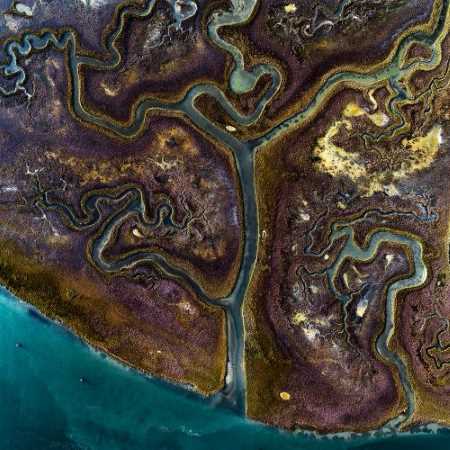PARK Chansoon
COVID-19 in the two Koreas
Having worked as a film translator for thirty years, PARK Chan-soon made her literary debut in the daily Chosun Ilbo‘s Spring Literary Contest in 2006. Her first collection, [The Garden of Balhae], came out in 2009; a second, the award-winning [Ladybugs Fly from the Top], in 2013; the third, [Slow Train Heading for Amsterdam], in 2018.
The Irony of Covid-19 in South Korea
Stuck in my apartment in one of South Korea’s virus-infected cities, I miss the pleasant Iowa City I recall as surrounded by green corn fields. Many futurists have warned that rapid urbanization and dense population would be a disaster one day. That day is now. After the crisis, can we become wiser human beings?
When Covid-19 was spreading rampant in Wuhan in China this past January, South Korea’s president Moon said to Xi Jinping, the Chinese Communist Party’s general secretary, ‘we will help you. A friend in need, a friend indeed.’ Despite the warning of the medical experts, he didn’t close the border to China. The result as of today, 8 April, is that the confirmed cases are over ten thousand, and the death toll is two hundred. By contrast, China closed its border to South Korea. There is no ‘we’ in the first place.
What makes the situation even more complicated is that the general election on 15 April is ticking closer. As new patient numbers are slowly decreasing, the government’s self-congratulation on overcoming the crisis by handling the disease effectively grows ever louder. In fact, of course, those who deserve praise are the doctors and the nurses, as well as the national health insurance system, which had been established by several previous governments.
Now the government is planning to distribute one million ₩ (=US $820) to 70% of low-income families in the name of emergency disaster assistance. This would help the ruling party, which should instead be judged on three years of its failing politics, to get more seats. Can we find some kind of magic that will prevent voters from being swayed by the cash?
To some, Covid-19 may be a blessing. To others, it is as cruel as April was to T. S. Eliot.
Can North Korea be honest about pandemic?
Among the worldwide efforts to overcome Covid-19, only North Korea, in a report of its Ministry of Health submitted to the WHO, insisted by 7 April that they have no cases at all.
Edwin Salvador, the Chief of the Pyongyang Branch of WHO, said that North Korea examined 709 citizens including 11 foreigners, and there was no confirmed case. He added that 509 people, including 2 foreigners, are quarantined.
But on 9 April, the UN pointed out that North Korea is among the 49 dangerous countries with regard to the Corona virus. The report said that 1 220 000 residents of North Korea suffer from malnutrition and food shortages, raking close to Nigeria, Bangladesh and Ethiopia.
Los Angeles Times questioned North Korea’s assertion that there is no confirmed case, pointing out that the N.K. government is concealing the reality of infection since they don’t have the ability to test. After years of sanctions, N.K ‘s public health system is very weak, with almost no access to medical supplies. Choi, a defector from North Korea, said, “The reality of North Korea reveals itself nakedly when an infectious disease develops. We can’t believe the statistics of N.K regime. Saving face is more important to them than the health and life of their people ."
Seo Jaepyong, the director of the Association of N.K Defectors, said to New York Times, “It is a downright lie that they have no patients in N.K. I heard from a N.K source about the death of a family of three, and an elderly couple, all of whom have died of Corona-19 in Chongjin.” As experts put it, only when it can report infectious disease statistics honestly can North Korea become a normal country.
Finally, an official comment on Covid-19 in North Korea was released on 11 April. According to the Korean Central News Agency, “North Korean leader Kim Jong-un held a meeting of the Party’s Political Bureau, discussed the 2019-2020 budget, and the downward adjustments of the policy goals decided last year.“ The Agency said that the background of the action was due to the fact of the worldwide spread of an infectious disease, which as a human disaster, was apparently impossible to overcome in a short period of time. So it became an obstacle interrupting the country’s struggle for economic development and advancement. However, Cho Hanbum, a senior researcher at the Center for Reunification of Korea commented that although North Korea is holding fast to their previous insistence that they have no Covid-19 patients, they here effectively acknowledged the need for economic austerity, and are readjusting the target numbers downward, using the infectious disease, an external factor, as an excuse. South Korean experts on North Korean affairs said that tying the economic decline to Covid-19 may thus have been a strategy for opening access to help from and cooperation with the outside world.



